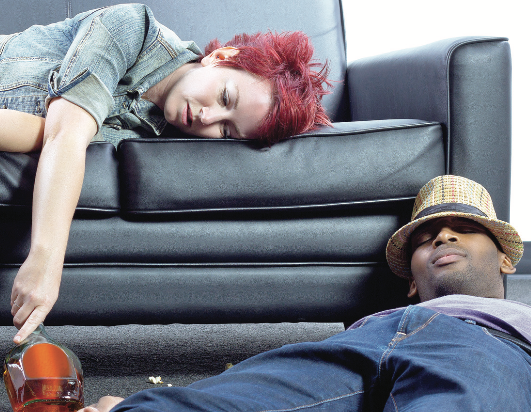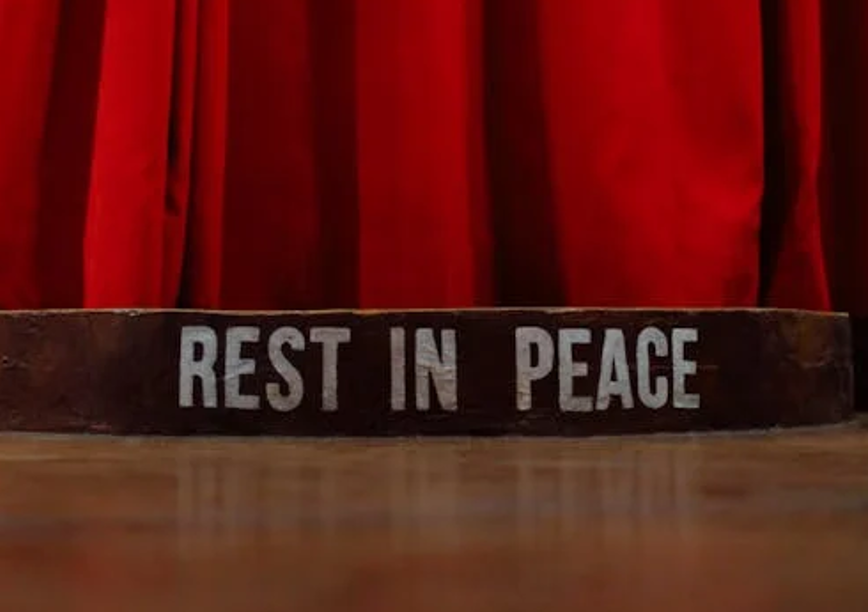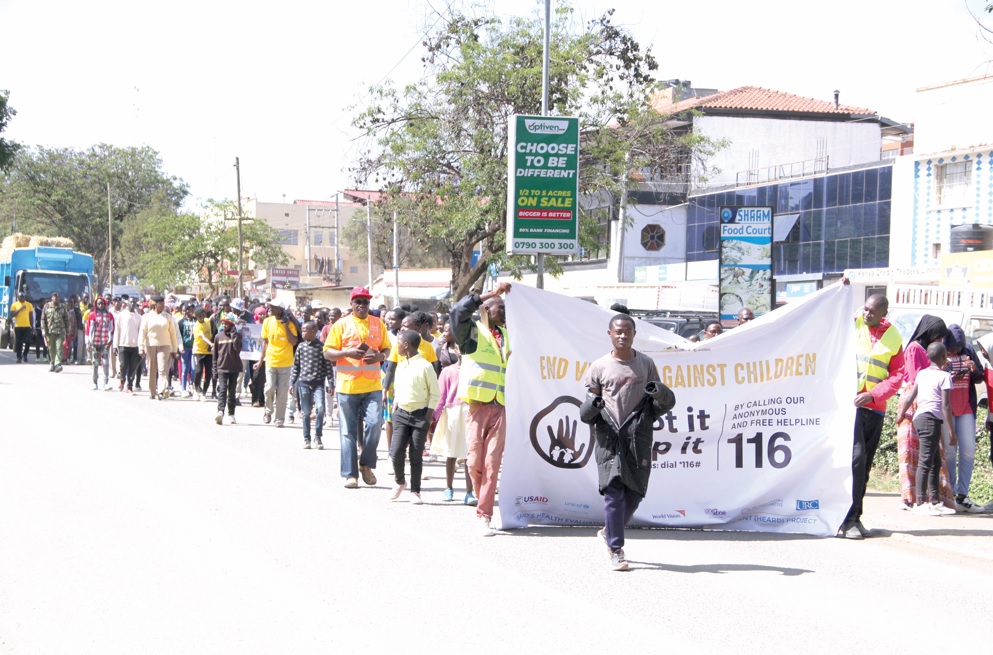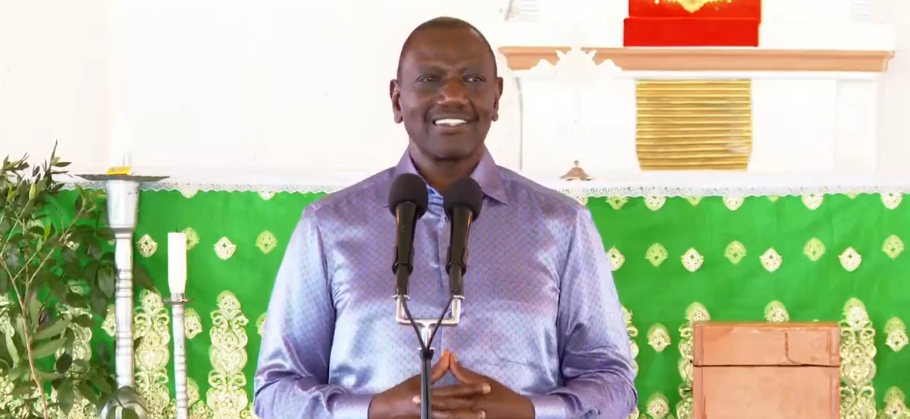Heavy burdens of children with alcoholic parents

At the end of ‘Children of Alcoholics Week’, victims talk about their shame, loneliness and guilt with nowhere to turn to for help
Imagine coming home from school and dreading what you might find. Imagine having no friends because you’re too embarrassed to bring them home in case mum or dad are drunk, or worse. Imagine living in a home full of fear and having no one to turn to.
That was Lila Achieng’s life growing up. Her memories of childhood are not exactly what a normal child’s memory should be. Living with an alcoholic father has influenced her in more ways than she cares to admit.
Her worst memories are back in primary school when she and her friends would stumble on her passed out father on their way to school on many mornings.
“It wasn’t easy at all. We lived close to my school and countless times, we found him totally blacked out in a ditch on the side of the road or he would stagger into the school compound totally drunk,” she narrates.
As a result, Achieng lost so many friends who mocked her because of her father’s misbehaviour.
“I remember one time I had just made new friends at a church my mother had started attending. The children were so nice and kind to me. So on this day about six of us decided we were going for a beach picnic, but since I had not told my mother about it, I decided to bring them home. I figured it would be easier getting permission if she knew who I was going out with. I opened the door and walked in on my dad lying right there, passed out on the floor snoring with his pants wet, he had peed on himself,” says the 22-year-old.
Humiliation
All her friends were right behind her and they saw everything! “That feeling of the ground refusing to open up to swallow me whole engulfed me. I ran away into the bathroom and refused to come out. It was one of those many times when my insides screamed in humiliation,” she painfully recalls.
Their situation got worse as she grew older. Her father had chosen to drink, and he had chosen that over their family.He spent all his money on alcohol and did not provide for the family, not even a day’s food.
Consequently, the burden of taking care of the family was laid squarely on their mother, a small scale businesswoman.
To help her mother, Achieng spent her late teenage years trying to protect her younger siblings and support her mother by doing manual jobs. There was little time for her to enjoy her youth.
“I had to work after school hours to help my mother provide for the family. I really don’t know what it is like to have a father because we had lost him. He was not only a drunk, but barely provided for any of our needs. All memories I have of him is one scary episode after another,” quips the University of Nairobi, Mombasa campus student.
Twenty-year-old Risper Mukami’s story is not so different from Achieng’s, only that for Mukami, it is her mother that was and is still addicted to alcohol.
She narrates how her childhood was devastated by her mother’s erratic behaviour whenever she came home from a drinking spree.
“I started living with my mother when I was in Class Four. Before that, my baby sister and I were living with our grandmother while my mother came to work in Mombasa as a beautician. She was a social drinker then,” she narrates.
But when they moved to Mombasa to live with their mother, they found that she had turned into an alcohol addict. “The longest she can go without drinking is a day. Nothing was more important than her next drink,” says Mukami.
She painfully recalls how her mother used to beat them up so hard that their neighbours intervened. When she got sober the following morning, she would not remember what she had done.
“My mother used to throw me out when drunk and forget it happened the next morning. Other times she would beat me up so bad with a frying pan until I could not walk and then ask me why I was limping on sobering up,” she painfully recalls.
So scared of her mother was she that she could not tell her when she started her periods while in Class Seven.
“I thought she was going to kill me if she found out I was having my period. I was in class when I saw red stains on my skirt. But even with all the bloodstains, I still refused to go home. The teachers gave me permission to go home before time, but I couldn’t,” she remembers.
One teacher had to buy her sanitary towels and a new skirt and some more pads to take home. “My mum did not even notice that my uniform was new, so I wasn’t beaten,” she narrates.
Her mother only knew she needed pads when she was getting admitted to Form One, because it was a necessary requirement for admission. Risper says her mother used to blame her for her troubles in relationships. “You know, my sister and I have different fathers, so my mother would constantly tell me I am the reason my baby sister’s father left her. She would say that on a daily basis and follow it up with a beating,” she cries.
Her mother hasnt changed even today. Mukami is still taking care of her basic needs while she goes to drink. “Sometimes when I am away working she calls crying hysterically saying she is starving, but when I give her money she goes drinking,” she says, frustration written all over her face.
She counts herself lucky for having an opportunity to join the university thanks to her grandfather and a white couple who understood her plight and offered to educate her.
A report by World Health Organisation (WHO) released in 2018 showed that the prevalence of alcohol use disorders was at four per cent in Kenya. That translates to two million Kenyans.
Lila and Risper are among the two million people who have had their childhood scarred by the drinking of one or both of their parents. As a result, millions of children are living and suffering under the hands of an alcoholic parent.
There is, however, little publicly available data to support the idea of a widespread crisis of intoxication in the country.
But a 2019 United Kingdom study paints a grim picture. The study by Bryant of the Institute of Alcohol Studies in London indicates roughly half of UK adolescents have seen a parent who’s not an alcoholic get drunk, and more than one in three can name at least one downside to parents’ drinking.
Parents were asked how much alcohol they consumed and how often they drank for reasons both negative and positive. The children were asked if they had ever seen their parent drunk, and whether the drinking affected parents’ behaviour.
More than a third of the children, 35 per cent, named at least one negative effect of their parent’s drinking. Children most commonly reported getting less attention (12 per cent) and being put to bed later than usual (11 per cent). They also felt parents argued more (8per cent) and behaved in a more unpredictable way (eight per cent).
The findings of another survey, contained in a report dubbed Status of Drugs and Substance Abuse among Primary School Pupils in Kenya, directly attributed substance abuse among children, some as young as four years old, to their parents’ and guardians’ lifestyles.
Child psychologist Florence Mueni says withdrawal symptoms such as convulsions and blackouts can be very scary to children, especially those under the age of 12, hence some children feel obligated to ensure the parents drink for fear that the parent may die.
Lasting effect
“Other children become pseudo mature taking over running of family affairs and making decisions on behalf of their parent. Adolescents, especially who take on this role, may miss out on going through normal childhood as they feel they are too mature than their peers due to what they experience at home. Parenting style is affected by severity of the alcohol addiction.
This means the parent is not emotionally available to their child/children hence their developmental needs remain unmet; a parent is no longer a secure base as they spend their time in activities related to getting high or dealing with the withdrawal symptoms , hence emotional neglect and insensitivity to a child’s needs.
Most of the time, shame and low self-esteem, guilt and embarrassment diffuse boundaries, especially if children have to clean after the parent’s mess or cover for them,” says Florence.
Parental drinking is a predictor of later adult drinking for the child. According to the child therapist, there is a high risk of developing mental illness such as depression.
As much as welfare programmes will try to protect children living under such conditions by providing them necessary support, it would do so much good if the help starts with giving them a better parent. This can be done helping the alcoholic parent recover.
According to the National Association for Children of Alcoholics, around 30 million children are born to alcoholic parents.
The term adult child of an alcoholic (ACoA) was derived in an attempt to describe the unique characteristics generally found among individuals who grew up with parents, where either one or both, struggled with alcohol abuse
Abdhalla Badrus, drug and substance department manager at Mewa Drug Treatment Centre agrees saying alcohol addiction has a lot to do with childhood problems, which reflect later as an adult.
He attributes most alcoholic problems to rough childhoods due to abuse, mental, sexual, and physical and sometimes it is even genetic influence. Other times it is just unfinished business in a way that one failed to experience certain things as a child due to cultural restraints or family background, but before they know it, they are completely drowning in the influence.
He says evidence has suggested children of alcoholics are at a significant risk for a variety of cognitive, emotional, and behavioral problems when compared to peers who were not raised by alcoholic parents.
“Children from parents who are addicted to substances are the group most at risk for later developing problems with drugs and alcohol, likely due to both genetics and environmental factors. They are also most likely to suffer child abuse and neglect,” she says.















